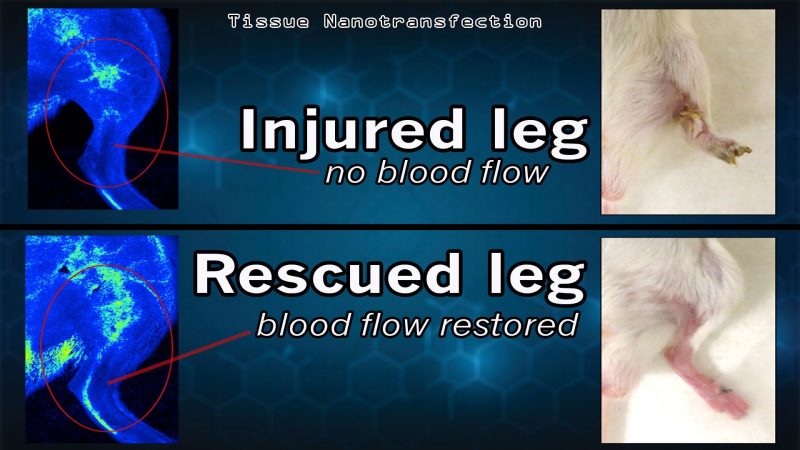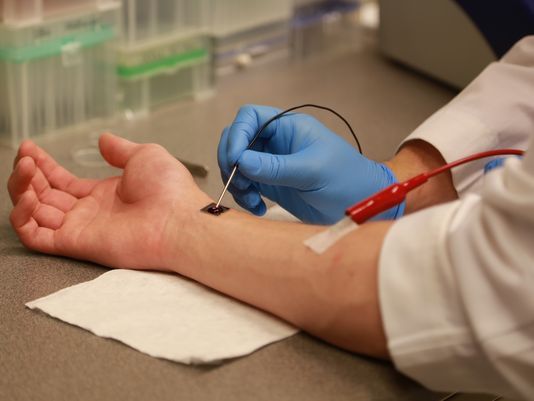New TNT technology can reprogram cells to treat diseases, heal injuries, and even repair brain injuries
A device created at Ohio State University, can reprogram DNA in cells to transform themselves into other types of cells to treat disease and repair damage. One of the successful tests performed already, was performed on a mouse which had his completely mangled leg repaired within several weeks.
The transformations begin immediately, and only requires a slight touch of a silicone chip. The technology is dubbed Tissue Nanotransfection (TNT). In the case of the mouse with the mangled leg, the mouse skin cells were reprogrammed by TNT to form vascular cells.

Some of the imagined uses for TNT technology are for beginning immediate regeneration on car crash victims, or injured soldiers on location.
TNT achieved this by reprogramming skin cells to grow brain cells.
But, this is just the tip of the iceberg; it not only works on skin cells, but can restore any type of tissue, according to Chandan Sen, director of the Center for Regenerative Medicine and Cell-Based Therapies.
The technology has already restored brain function in a mouse which had suffered a stroke. TNT achieved this by reprogramming skin cells to grow brain cells.
The silicone chip is about the size of a dime and according to the release, “injects genetic code into skin cells, turning those skin cells into other types of cells required for treating diseased conditions.”
https://www.youtube.com/watch?v=ovhpPvsdYlg
This revolutionary technology is a true breakthrough, as it’s the first time cells have been successfully reprogrammed in a live body. As of yet, there are no known side effects to TNT, and treatment initiation begins immediately upon touch.

There are other cell therapy methods available, but they are high risk. They are implemented by introducing a virus to the host and include multiple steps. In contrast, Sen said, “This technology does not require a laboratory or hospital and can actually be executed in the field…It’s less than 100 grams to carry and will have a long shelf life.”
At the moment TNT is waiting FDA approval, but Sen expects TNT will begin clinical trials on humans within 2017. Walter Reed National Medical Center is the current candidate for the testing.
https://gizbeat.com/12004/new-tnt-technology-can-reprogram-cells-to-treat-diseases-heal-injuries-and-even-repair-brain-injuries/https://gizbeat.com/wp-content/uploads/636373686212782000-02-arm-450x338.jpghttps://gizbeat.com/wp-content/uploads/636373686212782000-02-arm-150x150.jpgFeaturedTechA device created at Ohio State University, can reprogram DNA in cells to transform themselves into other types of cells to treat disease and repair damage. One of the successful tests performed already, was performed on a mouse which had his completely mangled leg repaired within several weeks. The transformations...Damian Parsonshttps://plus.google.com/107879368390224447304 [email protected]AdministratorHi, I'm Damian Parsons. I've been working with Android phones since the first Droid came out. I'm fascinated by computers and technology. My first BBS were ran on an old Apple IIc and Commodore 64. I work hard to bring the latest updates to you every day - without all the boring fluff. Please subscribe to keep up on the newest China tech. See our forum -> www.chinaphonearena.comGizBeat





Leave a Reply